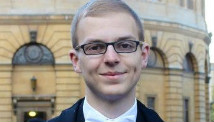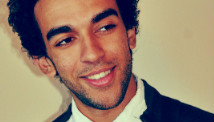BANGUI (Reuters) - The president of the Central African Republic appealed on Thursday for France and the United States to help push back rebels threatening his government and the capital, but Paris said its troops were only ready to protect French nationals.
The exchanges came as regional African leaders tried to broker a ceasefire deal and as rebels said they had temporarily halted their advance on Bangui, the capital, to allow talks to take place.
Insurgents on motorbikes and in pickup trucks have driven to within 75 km (47 miles) of Bangui after weeks of fighting, threatening to end President Francois Bozize's nearly 10-year-stint in charge of the turbulent, resource-rich country.
French nuclear energy group Areva mines the Bakouma uranium deposit in the CAR's south - France's biggest commercial interest in its former colony.
The rebel advance has highlighted the instability of a country that has remained poor since independence from Paris in 1960 despite rich deposits of uranium, gold and diamonds. Average income is barely over $2 a day.
Bozize on Thursday appealed for French and U.S. military support to stop the SELEKA rebel coalition, which has promised to overthrow him unless he implements a previous peace deal in full.
He told a crowd of anti-rebel protesters in the riverside capital that he had asked Paris and Washington to help move the rebels away from the capital to clear the way for peace talks which regional leaders say could be held soon in Libreville, Gabon.
"We are asking our cousins the French and the United States, which are major powers, to help us push back the rebels to their initial positions in a way that will permit talks in Libreville to resolve this crisis," Bozize said.
France has 250 soldiers in its landlocked former colony as part of a peacekeeping mission and Paris in the past has ousted or propped up governments - including by using air strikes to defend Bozize against rebels in 2006.
But French President Francois Hollande poured cold water on the latest request for help.
"If we have a presence, it's not to protect a regime, it's to protect our nationals and our interests and in no way to intervene in the internal business of a country, in this case the Central African Republic," Hollande said on the sidelines of a visit to a wholesale food market outside Paris.
"Those days are over," he said.
Some 1,200 French nationals live in the CAR, mostly in the capital, according to the French Foreign Ministry, where they typically work for mining firms or aid groups.
CEASEFIRE TALKS
The U.N. Security Council issued a statement saying its members "condemn the continued attacks on several towns perpetrated by the 'SELEKA' coalition of armed groups which gravely undermine the Libreville Comprehensive Peace Agreement and threaten the civilian population."
U.S. State Department spokesman Patrick Ventrell said the U.S. embassy had temporarily suspended operations and the U.S. ambassador and other embassy personnel had left the country.
Officials from around central Africa are due to meet in Bangui later on Thursday to open initial talks with the government and rebels.
A rebel spokesman said fighters had temporarily halted their advance to allow dialogue.
"We will not enter Bangui," Colonel Djouma Narkoyo, the rebel spokesman, told Reuters by telephone.
Previous rebel promises to stop advancing have been broken, and a diplomatic source said rebels had taken up positions around Bangui on Thursday, effectively surrounding it.
The atmosphere remained tense in the city the day after anti-rebel protests broke out, and residents were stocking up on food and water.
Government soldiers deployed at strategic sites and French troops reinforced security at the French embassy after protesters threw rocks at the building on Wednesday.
In Paris, the French Foreign Ministry said protecting foreigners and embassies was the responsibility of the CAR authorities.
"This message will once again be stressed to the CAR's charge d'affaires in Paris, who has been summoned this afternoon," a ministry spokesman said.
He also said France condemned the rebels for pursuing hostilities and urged all sides to commit to talks.
Bozize came to power in a 2003 rebellion that overthrew President Ange-Felix Patasse.
However, France is increasingly reluctant to directly intervene in conflicts in its former colonies. Since coming to power in May, Hollande has promised to end its shadowy relations with former colonies and put ties on a healthier footing.
A military source and an aid worker said the rebels had got as far as Damara, 75 km (47 miles) from Bangui, by late afternoon on Wednesday, having skirted Sibut, where some 150 Chadian soldiers had earlier been deployed to try and block a push south by a rebel coalition.
With a government that holds little sway outside the capital, some parts of the country have long endured the consequences of conflicts in troubled neighbors Chad, Sudan and the Democratic Republic of Congo spilling over.
The Central African Republic is one of a number of nations in the region where U.S. Special Forces are helping local forces try to track down the Lords Resistance Army, a rebel group responsible for killing thousands of civilians across four African nations.
(Additional reporting by Leigh Thomas and Louis Charbonneau; Writing by Richard Valdmanis; Editing by Andrew Osborn and Paul Simao)



